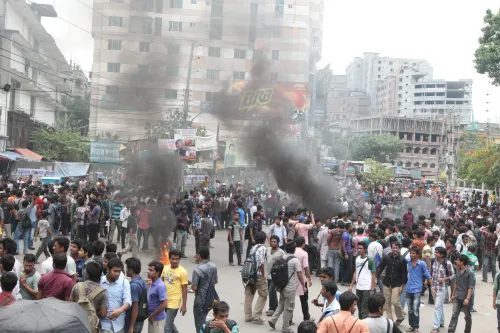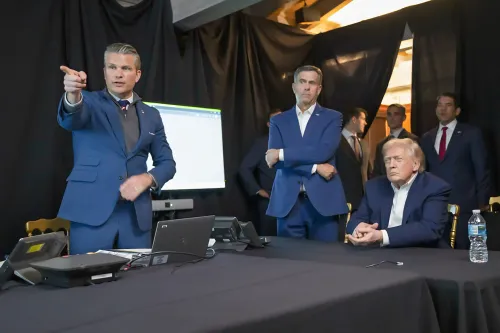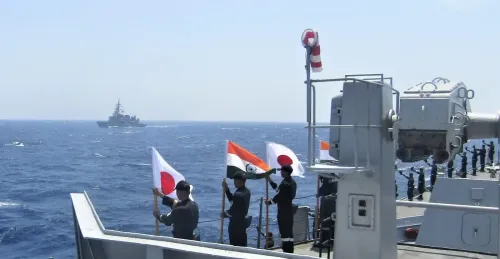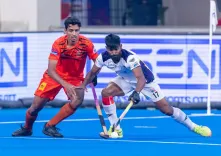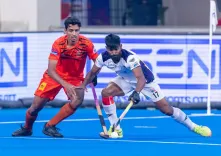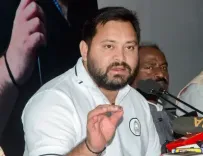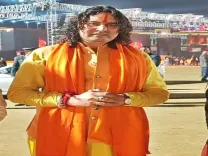Did US Prez Trump Invite PM Modi to Washington?
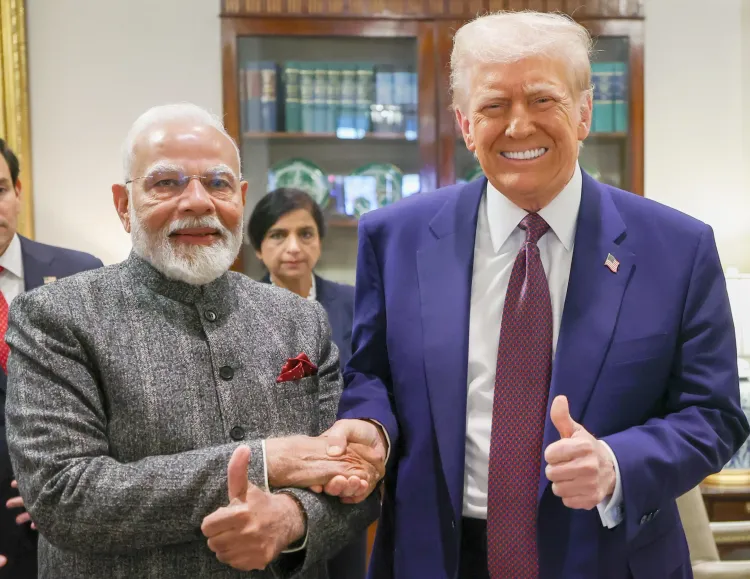
Synopsis
Key Takeaways
- US President Trump invited PM Modi to Washington.
- PM Modi declined due to prior commitments but both leaders aim to meet soon.
- Discussion included Operation Sindoor and India's military response to terrorism.
- India reiterated its position against mediation regarding Pakistan.
- Both leaders emphasized the need for direct dialogue on international issues.
New Delhi, June 18 (NationPress) Foreign Secretary Vikram Misri stated on Wednesday that US President Donald Trump has extended an invitation to Prime Minister Narendra Modi to come to Washington following his visit to Canada.
During a 35-minute phone conversation between the two leaders, Misri shared, "President Trump inquired whether PM Modi could make a stop in the US on his way back from Canada; however, the Prime Minister indicated he could not due to prior commitments. Both leaders, though, expressed a desire to meet soon."
Additionally, they discussed the Indo-Pacific region and the significant role of the QUAD. PM Modi invited President Trump to India for the upcoming QUAD summit, which was accepted by Trump, Misri reported.
During this exchange, PM Modi also conveyed to President Trump that India does not seek, nor will it ever accept, any form of mediation regarding issues related to Pakistan.
This was the first communication between PM Modi and President Trump following the Pahalgam terror attack and India's subsequent retaliatory operation, Operation Sindoor.
The call occurred after a planned in-person meeting during the G7 Summit was canceled due to Trump's early return to the US.
"The phone conversation was initiated at President Trump's request," Misri remarked, adding that PM Modi took the opportunity to outline India's measured military response to the April 22 terror attack in Pahalgam, which resulted in the deaths of 26 innocent tourists.
The attack had been claimed by The Resistance Front, a group associated with the Pakistan-based terrorist organization Lashkar-e-Taiba.
"PM Modi stated that during the night of May 6-7, India focused solely on terrorist hideouts in Pakistan and Pakistan-occupied Kashmir. India's military actions were deliberate, precise, and aimed at de-escalation," Misri remarked.
"India made it clear that it would respond to Pakistan's 'goli' with 'gola' (a robust, proportionate military response)," he stated.
Operation Sindoor involved India targeting nine critical terrorist infrastructure sites in Pakistan and PoK. In retaliation, Pakistan carried out military strikes not only against Indian military targets but also against civilian and religious sites, leading to further escalations.
Misri also revealed that on the night of May 9, US Vice President Vance informed PM Modi that Pakistan might initiate a significant retaliatory strike.
"PM Modi clearly conveyed that should this occur, India would respond with even greater force. India's decisive counterattack on the night of May 9-10 inflicted substantial damage on Pakistan's military, rendering several of their airbases non-operational," Misri stated.
Following India's assertive response, Pakistan approached India with a ceasefire proposal.
"PM Modi emphasized that the ceasefire was agreed upon solely at Pakistan's request and reiterated that India does not desire mediation. He clarified that at no point during this period were India-US trade discussions or third-party mediation involved," Misri noted.
"The cessation of military action was negotiated directly between the two nations through existing military channels," he added.
Reaffirming India's long-held stance, Misri emphasized, "PM Modi reiterated that India has never accepted mediation, does not accept it, and will never accept it. There is complete political consensus in India on this matter."
As per Misri, President Trump fully comprehended India's position and expressed support for its efforts to combat terrorism. PM Modi also informed Trump that India views any terrorist act originating from Pakistan as an act of war, and that Operation Sindoor remains active.
The conversation also touched on global issues, including the Iran-Israel conflict and the Russia-Ukraine war.
Both leaders concurred that direct dialogue between Moscow and Kyiv is essential for achieving peace.


